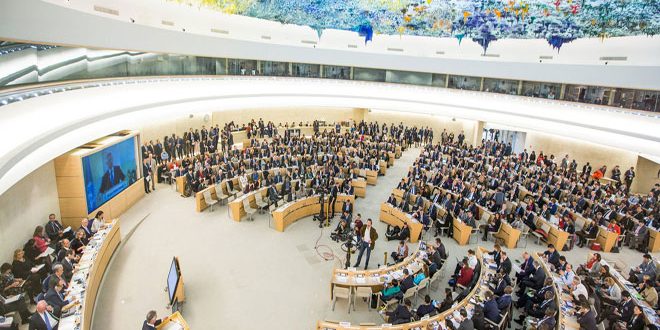Unilateral coercive measures by some governments are denying many people around the world the right to personal development, as well as holding back sustainable national development, four independent UN human rights experts said last Wednesday
The Human Rights Council-appointed experts called on all nations imposing punitive unilateral sanctions on other countries, to withdraw or at least minimize them, to guarantee that the rule of law and human rights are not affected, including the right to development.
“The precautionary principle should be applied by States when unilateral sanctions are taken to avoid any negative humanitarian impact on the whole scope of human rights, including the right to development”, the experts said in a statement.
“The punishment of innocent civilians must end.
The independent experts reminded that the General Assembly declared the right to development “an inalienable human right”, which is recognized by “a range of multilateral human rights declarations”, including the African Charter on Human and Peoples’ Rights as well as the Arab Charter on Human Rights.
Implementing unilateral sanctions – such as secondary sanctions against people who allegedly interact with sanctioned people and Governments, and national civil and criminal penalties – result in over-compliance, according to the UN experts.
And these measures exacerbate and expand their impact, not just to every individual or company where they are in force, but also to third country nationals and companies, humanitarian organizations, donors and beneficiaries of humanitarian aid.
“Sanctions hold countries back from development, they hold back people as well, and in a globalizing world, that hurts everyone”, the independent experts stated.
The experts underscored that people in targeted countries like Venezuela, Cuba, Syria and Iran, sink into poverty because they cannot get essential services like electricity, housing, water, gas and fuel, let alone medicine and food.
“Sanctions make it harder for entire populations to stay healthy and hamper the transportation of goods needed for economic development, result in the waste of natural resources, undermine environmental sustainability and achievement of the Sustainable Development Goals (SDGs)”, they explained.
For example, when sanctions imposed by the United States block teleconferencing and data services in countries, people are cut off from webinars and online meetings for information, exchanges, education and training, and doctors cannot consult medical data bases, the experts continued.
“Activities essential to every country’s development suffer when unilateral sanctions are imposed”, they spelled out.
The four UN experts who signed the statement, are Alena Douhan, UN Special Rapporteur on the negative impact of the unilateral coercive measures on the enjoyment of human rights; Obiora Okafor, Independent Expert on human rights and international solidarity; Livingstone Sewanyana, Independent Expert on the promotion of a democratic and equitable international order; and Tlaleng Mofokeng Special Rapporteur on the right of everyone to the enjoyment of the highest attainable standard of physical and mental health.
O. al-Mohammad

